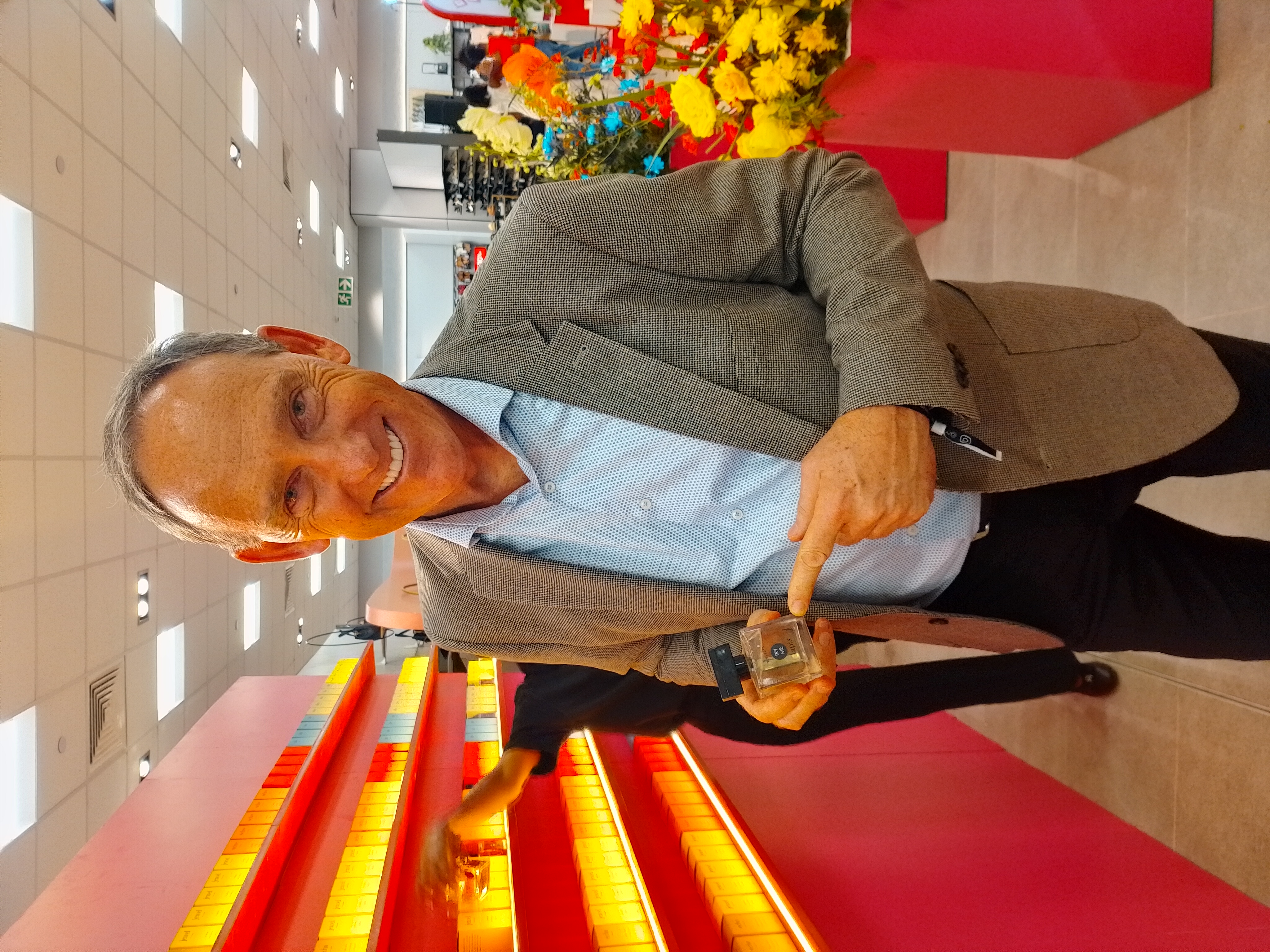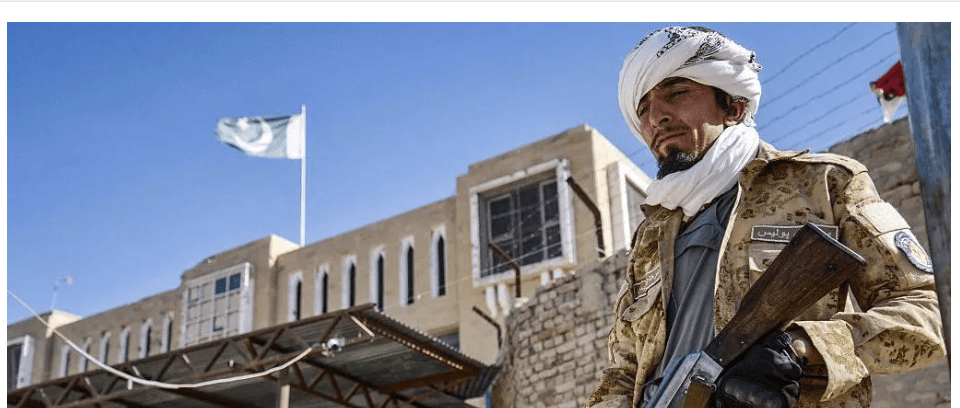 Woolworths Holdings Group CEO Roy Bagattini at the firm’s new beauty destination at Sarit Centre, Nairobi/ MARTIN MWITA
Woolworths Holdings Group CEO Roy Bagattini at the firm’s new beauty destination at Sarit Centre, Nairobi/ MARTIN MWITASouth African retail brand Woolworths last Thursday launched a new beauty destination at Sarit Centre, the first outside South Africa, bringing globally renowned brands and an expanded WBeauty range to Kenya for the very first time.
The firm has expanded beyond clothing with revenue in the Kenyan beauty and personal care market projected to reach $24.33 million (Sh3.13 billion) in 2025. Revenue is expected to show an annual growth rate (CAGR 2025-2030) of 8.51 per cent, resulting in a projected market volume of $36.59 million (Sh4.7billion) by 2030.
The Star had an opportunity to speak to Woolworths Holdings Group CEO Roy Bagattini on the firm’s expansion, partnerships with global skincare brands such as Laneige and The Ordinary, Rihanna’s Fenty Beauty, and innovative fragrances from Boadicea the Victorious, Thomas Kosmala, and more, its own WBeauty range and a sustainable, co-created denim bag in partnership with Nairobi’s Rummage studio. We also sought to know industry challenges, the future of the beauty and clothing industry and Woolworth’s future plans.
When did you make entry into the Kenyan market and how has your journey been?
We came to Kenya 20 plus years ago. We gave a franchise to the brand to someone to start and then years later, we acquired the business back in 2007, 2008 , somewhere around there. We bought it back. We have opened up 11 stores in Kenya, a number of them obviously in and around Nairobi and then we have gone to one or two other areas, but Nairobi has been the major focus for us. Kenya is an important market for us because it is a bit of a trend setting market, certainly Nairobi as a city is also a city where you have a lot, it is a creative hub, a lot of self-expression and that is why this thing of beauty has been so important for us to come here first. We have put together a concept which is a full beauty experience with international brands, regional and obviously some local, but also for us as Woolworths, we have the WBeauty brand, which is the Woolworths developed brand. We have some very specific and unique brands from Kenya as well, which we have curated and selected. We have spent months training people who are now beauty consultants, beauty therapists, who can advise and guide consumers. Nairobi is more of a launch pad before we go to other markets in the region.
How many markets are you in Africa and how would you compare the Kenyan market with others?
We are in 10 markets outside of South Africa. Well for us it is one of our most developed markets, you know we have a fair presence over here with these 11 stores. In some of the other markets we would have less stores than this, but it is one where we are beginning to invest more because of the possibilities and the potential. That is why we are here and that is why we have made these types of investments.
You have partnered with a team from Gikomba market, what is it about and are you open to more partnerships?
That is a small thing that we have done, but it is the type of thing we should do a lot more. We have partnered Rummage studio to find denim jeans that have been thrown away, they are making bags with our support. Business cannot perform and flourish without local partnerships at every level, whether it is around the sourcing of the product, around your open stores, you need to put equipment and you need the local aspect.
We have seen a number of big retail brands mainly from South Africa enter the Kenyan market but fail to survive, what is your secret?
I don't know specifically those companies' strategies but for us, these markets are very attractive. Sometimes they are volatile. You have to deal with certain things whether economically, politically, etc., there is always levels of challenges but you have to be committed. The second thing is you have to be in tune and in touch. You cannot be ignorant and say because we do it this way in South Africa, we will show you how to do it. What works in South Africa does not necessarily mean it will work in other markets, you have to consider the local market, ideas that will work and make the best out of it. You have to work in a very collaborative way with people that are here. I can give you this example around beauty, our approach to certain beauty products and applications, if we adopted the South African approach, it would fail dismally over here. But we have spent time with Kenyan consumers and we have together come up with offerings that are specific to the Nairobi consumers. We are here for the long term.
Which is your biggest market outside South Africa?
Botswana. Partly because we do food business there as well and the proximity, it is much easier to get product in and get product out. Similar to what we do in Namibia or Mozambique.
Where does Kenya rank?
Kenya is number two in markets outside South Africa even without the food business.
If you were to expand the food business, which other African countries would you go to?
Kenya would certainly be on the list. So would Tanzania. In Zambia, we have already started. It is a little bit further away, but we are making some good successes there as well. If you can have volumes, you can then have the scale, then it makes the logistics much more sustainable.
What would you say are some of the biggest challenges in operating in Kenya?
Policies that are put in place that impact the way we run the business. If there is consistency and clarity, it makes life a lot easier. If things change quite a lot, it is very difficult then to sort of plan and commit very strongly. If you have a situation where you are shipping products and then a rule might change, then you cannot get the product in, those are difficult circumstances. And those are some of the challenges that we do have. It is important for the government to develope policies that really serve the country well. And no matter what they are, just to be clear on what they are, because it allows business a level of consistency and we can commit, we can work out solutions that can meet those policy requirements.
Among the countries you operate in, which has the most business-friendly environment?I think Namibia certainly does, you know, make it quite almost frictionless to operate, although they have their own rules and regulations and they all want to protect local interests, as you can appreciate. But it is more consistent.
What is the future of the beauty and clothing industry, from your perspective?
I think it is very positive. You know, there are always challenges to any business but it is normal, sometimes things go up and then they come down and up. But I think what is very important is that companies that are in these sectors really focus on sustainability. Know how you make your clothes, where they are made, how you transport, how you bring them through, how you drive a more circularity around that process, this is very important. Clothing industries are known to be very pollutive so if you don't make products that can be recycled or reused, or you find different repurposing for products, you are then just contributing to the environmental issues that we have. But in terms of general fundamental possibility and potential, the sky is the limit.
Are you concerned about mitumba (second-hand clothes) eating into the formal retail space?
Not at all. I think it is a very good thing and to the extent that formal businesses can play a role in supporting that, they should. We can be a point of gathering for these garments, sorting them, channelling them and moving them on to the second-hand market. That is the sort of role we should play.
What is your take on the African Continental Free Trade Area’s potential for the retail market?
If countries can respect the trading rules, create predictability and supportive infrastructure, then the potential is huge. I think we would be in a very different place as a continent and our fundamental economic clout would be very different. But getting the cooperation and the collaboration is always challenging.
Any parting shot?
It is a very exciting time to be in Africa. It is a very exciting time to be in a country like Kenya. Sometimes when you are in a country, you don't always see the positives and the opportunities, because day-to-day life is not easy. People are experiencing pressures from every angle and so sometimes the possibilities are not always seen. And I am very privileged and fortunate to be able to come in and from the outside, look at some of these things and I just see opportunity. And that is why I am so excited about it.

















